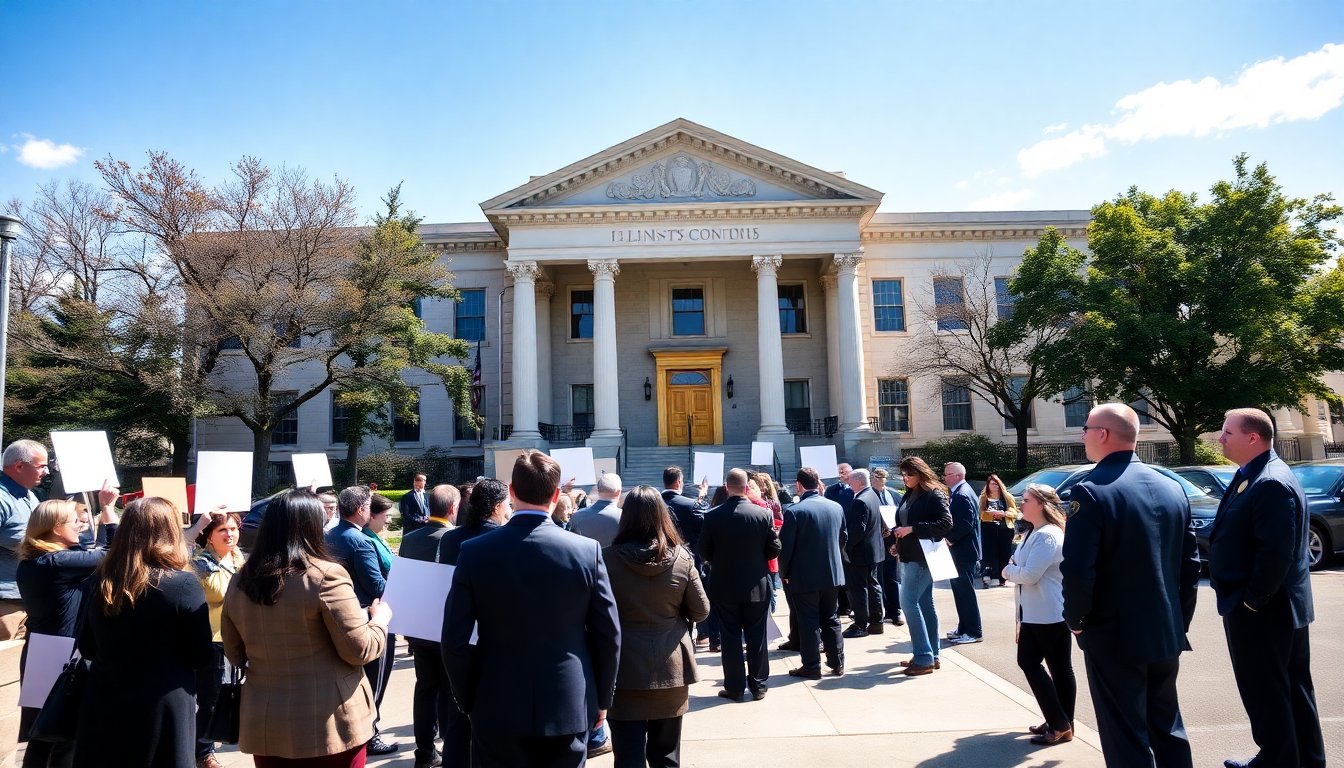Table of Contents
In a decisive move, Illinois lawmakers approved a bill that prohibits federal immigration agents from making arrests near courthouses. This legislation passed along party lines and is now awaiting the signature of Governor JB Pritzker, who has expressed support for the initiative. The primary aim of this measure is to ensure that all individuals can access the court system without the fear of deportation, thereby protecting their constitutional rights.
Details of the legislation
The newly passed bill allows individuals to file lawsuits if they believe their rights were violated during immigration arrests. This provision seeks to address situations where someone attending a court hearing, either as a party or a witness, is detained by immigration authorities. A significant aspect of this law is the potential for civil damages in cases of false imprisonment.
Concerns raised by supporters
Proponents of the bill stress the importance of keeping courthouses accessible to all individuals seeking justice. Senate President Don Harmon, a primary sponsor of the legislation, recognized potential legal challenges ahead but underscored the imperative of advancing this law. He stated, “It’s not just about the constitutionality of the law, which I believe is sound, but the reality that the courts may not favor us.” Harmon also highlighted that the federal government holds the authority to transfer cases from state courts to federal courts.
Impact of recent court orders
A judge in Cook County, which includes Chicago, recently ruled against immigration arrests at county courthouses. This decision aims to address concerns about the “fear and obstruction” these arrests may cause during legal proceedings. The ruling explicitly prevents immigration authorities from detaining individuals present in court as parties, witnesses, or potential witnesses.
The federal response
Despite state-level protections, the federal government asserts that no areas are designated as safe havens from legal consequences for immigration violations. Immigration policies under the Trump administration prioritize the detention and deportation of undocumented migrants. Reports indicate that ICE has conducted arrests without regard for an individual’s legal status.
Broader implications of the legislation
This legislation reflects a growing movement among various states to shield immigrants from federal enforcement actions. Similar measures have been enacted or proposed in states like California, which has enforced restrictions on immigration enforcement in courthouses since 2017. California Attorney General Rob Bonta stated that while the state cannot dictate federal immigration policies, it must ensure that all residents can access court facilities without fear.
Additionally, this new law mandates that institutions such as hospitals and schools establish policies governing their interactions with immigration officials. This requirement addresses the federal government’s recent rollback of protections that previously safeguarded sensitive locations from immigration enforcement actions.
Understanding the sanctuary movement
The sanctuary movement began in the 1980s to protect Central American refugees escaping violence and persecution. Since then, it has transformed, with numerous cities now declaring themselves sanctuary cities. These municipalities limit their cooperation with federal immigration enforcement agencies.
Proponents of sanctuary cities argue that these policies alleviate the fear of deportation. This encourages immigrants to report crimes and access vital services without the risk of being detained. Research shows that sanctuary policies often do not lead to increased crime rates; in fact, some studies indicate that these cities may have lower crime rates than their non-sanctuary counterparts.
Opposition and ongoing debates
Opponents of sanctuary cities argue that these policies undermine the rule of law and public safety. They believe such jurisdictions may attract individuals seeking to evade immigration enforcement. This debate remains contentious in American politics, particularly as it intersects with broader discussions about immigration reform.
The recent actions by Illinois lawmakers highlight a growing recognition of the need to protect immigrants’ rights within the judicial system. As this legislation progresses, its implications are expected to resonate beyond state borders, influencing the national dialogue on immigration enforcement and the rights of individuals in the legal system.


